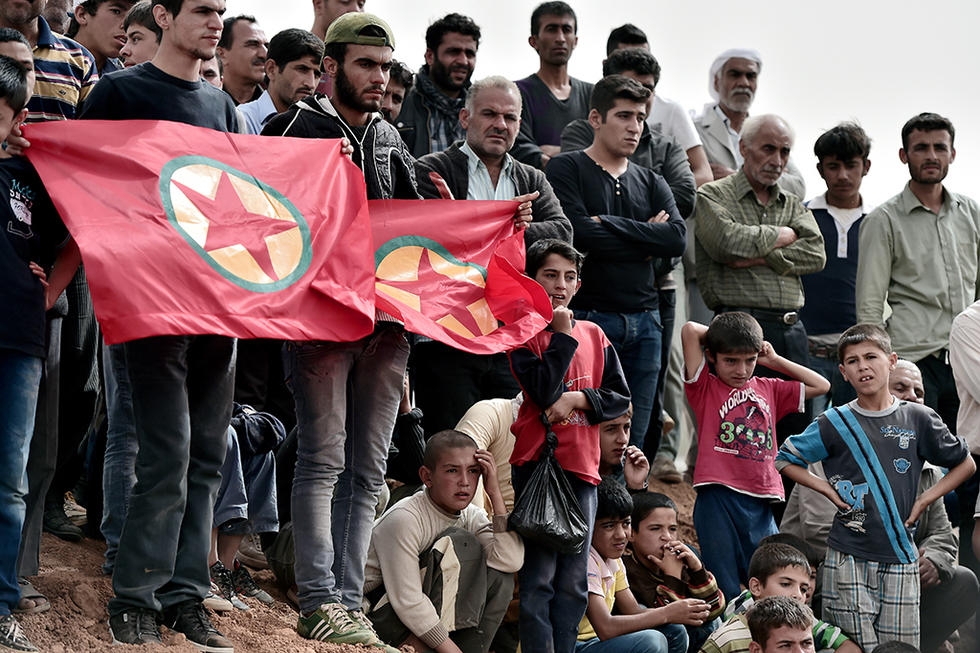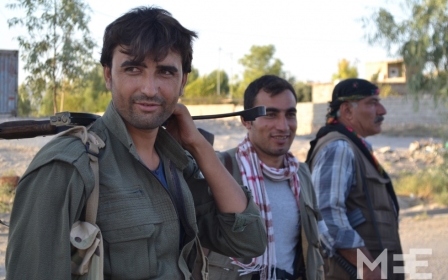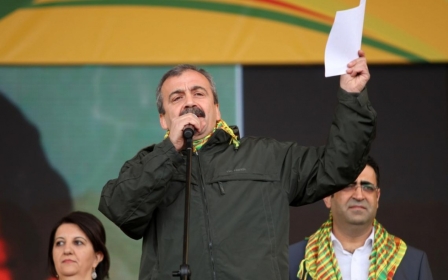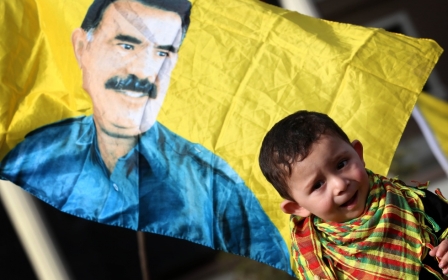PKK says decision to lay down arms cannot be made by HDP or Ocalan

A PKK-linked Kurdish transnational organisation has warned that neither the HDP party, which this week entered Turkey's parliament following elections, nor the imprisoned PKK leader Abdullah Ocalan could order the PKK to disarm and end its decades-long guerilla war.
In an apparent assertion of the authority of the PKK-aligned Group of Communities in Kurdistan (KCK), it emphasised in a statement released on the pro-PKK ANF News website that the People’s Democracy Party (HDP) in Turkey - which recently entered the Turkish parliament following success in last week’s elections - could not give the order for the PKK to lay down its weapons.
The KCK also stated that the decision could not lie with Ocalan - currently serving a life sentence in prison - as he was “unable to make such a call in his current conditions”.
The transnational organisation added, however, that it was “not disregarding leader Apo or HDP, but on the contrary supporting the different roles of political actors in Kurdish politics,” referring to Ocalan by his affectionate nickname “Apo.”
The KCK officially operates as a body unifying the various PKK-affiliated bodies across the historical Kurdistan region, including the Democratic Union Party (PYD) in Syria and Party of Free Life of Kurdistan (PJAK) in Iran.
While the PKK has historically been seen as autocratically run from the top of the organisation by Ocalan - around whom a personality cult has developed with his image adorning flags and other paraphernalia - the ideological shift away from Marxist-Leninism to what Ocalan has termed “democratic confederalism” has led to the construction of numerous devolved power structures within the organisation.
Ocalan has described democratic confederalism as the "expression of the democratic union of the Kurdish people that have been split into four parts and have spread all over the world".
Ocalan 'isolation'
The HDP recently condemned what they called the “isolation” of Ocalan in his prison on Imrali island by the Turkish government, saying that the government was looking to undermine a restart of the peace process.
“An unannounced isolation of İmrali has entered into force. We believe this behaviour doesn’t befit the seriousness of the peace process,” said HDP Deputy Sirri Süreyya Onder on 12 June.
Onder said the party had applied to the Justice Ministry for a delegation to visit Ocalan in prison, but had their application rejected.
The KCK emphasised in their Friday statement that there could be no lasting peace without Ocalan’s release.
"The basic reason for the failure to achieve a result in İmrali talks is the fact that Leader Apo's status remains unchanged and that he cannot lead negotiations under unfree conditions,” it read.
“It is not possible for any policy that excludes the freedom of Leader Apo to take a step for a resolution. The ongoing solitary confinement of Leader Apo is the most evident expression of the fact that the mentality and policies regarding the Kurdish question remains the same.”
The PKK has been engaged in a bloody guerilla war with the Turkish state since 1984, costing over 40,000 lives and the destruction of thousands of Kurdish villages.
Since Ocalan’s capture in 1999, the group have moved their aims away from creating an independent Kurdistan, but sporadic violence still continues.
The Justice and Development Party (AKP) government began an official peace process with the PKK in 2012, but this collapsed following the rise in violence in the Kurdish areas of Syria in 2014, where Kurdish activists claim that Turkey has backed anti-PKK forces such as the Islamic State and Al-Nusra Front.
New MEE newsletter: Jerusalem Dispatch
Sign up to get the latest insights and analysis on Israel-Palestine, alongside Turkey Unpacked and other MEE newsletters
Middle East Eye delivers independent and unrivalled coverage and analysis of the Middle East, North Africa and beyond. To learn more about republishing this content and the associated fees, please fill out this form. More about MEE can be found here.




